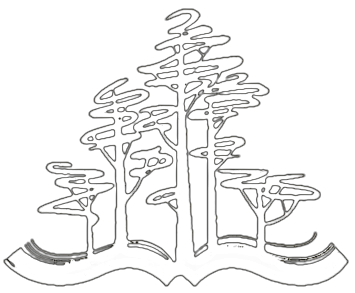Summer School on the Russian Literature. 2018.
Vol. 14. № 1
Out of the four stories from „The Primal Chronic“, that are telling about the revenge of Olga, the forth is considered to be written later than the three others. The text of the four stories is being analyzed in the purpose to understand what makes this difference.
Keywords: „The Primal Chronic“, motive, repetition, poetics.
Keywords: „The Primal Chronic“, motive, repetition, poetics.
Mikhail Arslanyan
On the problem of thematic definition of the chronicle story about the fourth revenge of princess Olga
The article reviews the history of the publication of Baratynsky’s „Collected Poems“ (1835), the critical reception of the book, and its influence on his further literary career. Analyzing Baratynsky’s publications in 1835–1836, the author of the article assumes that the belated publication of the collection overshadowed Baratynsky’s new poetic texts in the „Moscow Observer“ („The Last Poet“, „Nedonosok“, etc.), and the composition of the poetic book did not allow to highlight Baratynsky’s texts of the early 1830’s and to estimate his poetic evolution.
Keywords: E. Baratynsky, literary reputation, reception studies, N. Yazykov, A. Pushkin.
Keywords: E. Baratynsky, literary reputation, reception studies, N. Yazykov, A. Pushkin.
Alina Bodrova
An intempestive collection
„Poems“ of 1835 in Baratynsky's literary career
„Poems“ of 1835 in Baratynsky's literary career
The aim of the paper is a comparative analysis of the use of the French language by Pushkin in poetry, prose and letters. The transition from Russian to French and vice versa turns out to be differently labeled in different genres, but in any case, in addition to the etiquette function, it entails the choice of a certain style, behind which is a picture of the world that is peculiar to one or another language.
Keywords: A. S. Pushkin, bilingualism, plans and outlines, madrigals, epigrams, epistolary genre.
Keywords: A. S. Pushkin, bilingualism, plans and outlines, madrigals, epigrams, epistolary genre.
Ekaterina Dmitrieva
From madrigals and epigrams to epistolary prose
Bilingualism and multilingualism in the texts of A. S. Pushkin
Bilingualism and multilingualism in the texts of A. S. Pushkin
The article discusses both explicit and oblique allusions to two real-life criminal cases in Vladimir Nabokov’s „Lolita“. What seems particularly important for understanding the authorial narrative strategy and deeper meanings of the text is the case of eleven-year-old Sally Horner who was kidnapped and abused by a pedophile in 1948 A sordid history of her life and death known to Nabokov from newspapers had a lot of correspondences to that of Lolita and most probably, as the author argues, helped the writer to develop a plot of the second part of the novel.
Keywords: Vladimir Nabokov, Lolita, Sally Horner, pedophile, kidnapping, newspaper sources.
Keywords: Vladimir Nabokov, Lolita, Sally Horner, pedophile, kidnapping, newspaper sources.
Alexander Dolinin
Who is „Sally Gorner“?
About one real source of „Lolita“
About one real source of „Lolita“
The article treats „Poems of Sapho, Lesbian Poetess“ by Ivan Vinogradov (1792). This book contains not only Sapho’s verses, but Russian translations from Petrarch, as well as poems by unknown poets and some perhaps written by Vinogradov himself. We have identified the source for this collection as a popular French anthology by Julien-Jacques Moutonnet de Clairfons (1740–1813), which was published many times in the 18th century. Vinogradov took also a biography of Sapho from this book.
Keywords: 18th century, russian literature, anacreontics, reception of antiquity, poetry and poetics, Ivan Vinogradov, Julien-Jacques Moutonnet de Clairfons.
Keywords: 18th century, russian literature, anacreontics, reception of antiquity, poetry and poetics, Ivan Vinogradov, Julien-Jacques Moutonnet de Clairfons.
Konstantin Lappo-Danilevsky
„Poems of Sapho, Lesbian Poetess“ (1792) by I. I. Vinogradov and their French source
This article is a close reading of Osip Mandel’shtam’s enigmatic quatrain (1933, 1935) about the Italian language. Brief as it is, it boasts variation on several traditional topoi at once. Two among them are: disputes about the nature of the literary Italian language (for Mandel’shtam Italian sounded sometimes feminine, sometimes childish) and the issue of it having been shaped by its founders, namely Petrarch, Ariosto and Tasso. The miniature poem is lavishly decorated with the key-words pearl and friend involving Russian-Italian associations and also harbors a rich gastronomic metaphor: relishing Italian phonetics like an oyster. The paper shows the poem to be a consummate gem in the widespread genre of Russian Italophile verse.
Keywords: Mandel’shtam, philological poetry, close reading of a text, the grammar of poetry, intertextuality, Petrarch, Ariosto, Tasso, Lomonosov, Batiushkov, Pushkin, Russian Italophilia, debates on the gender of different languages, pearl topos, oyster topos, friendship motif.
Keywords: Mandel’shtam, philological poetry, close reading of a text, the grammar of poetry, intertextuality, Petrarch, Ariosto, Tasso, Lomonosov, Batiushkov, Pushkin, Russian Italophilia, debates on the gender of different languages, pearl topos, oyster topos, friendship motif.
Lada Panova
Sensual Philology
„Friend of Arioste, friend of Petrarch, friend of Tass...“ by Mandel'stam
„Friend of Arioste, friend of Petrarch, friend of Tass...“ by Mandel'stam
Contacts
summerschool@list.ru
В оформлении сайта использованы материалы Freepik.


